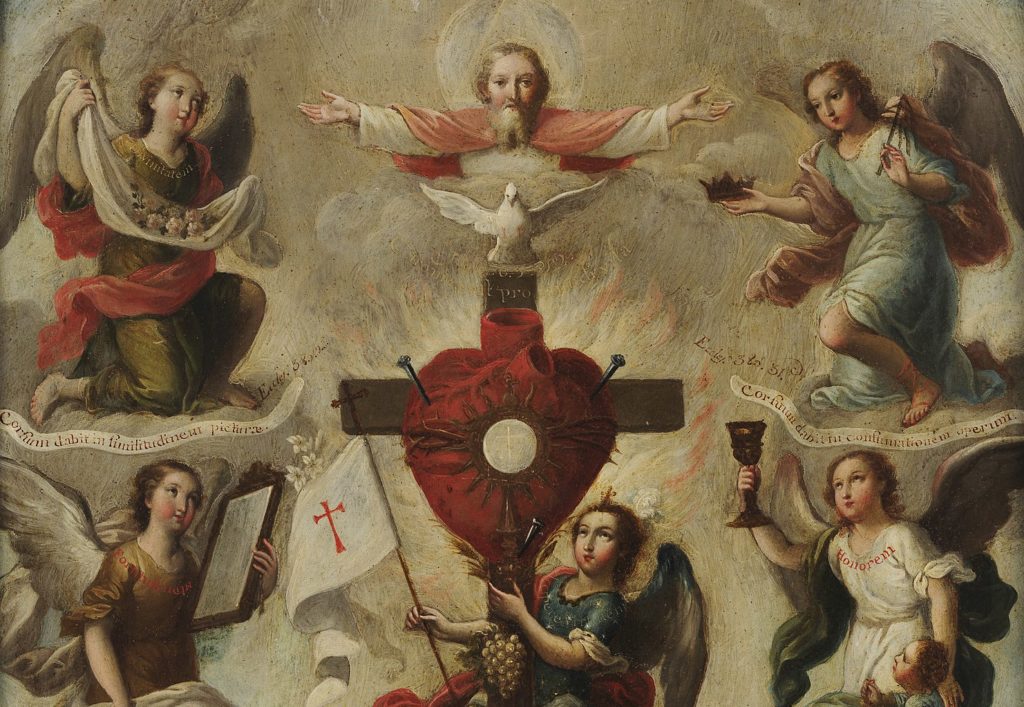In the year 2020 I spent much of the Lenten and Easter seasons in online video meetings — and a eucharistic fast.
Through the mediation of a screen I played with my grandkids and taught my students. By the same means I attended days of recollection and my weekly study circle.
It served its purpose as a stopgap, and I endured it as a kind of penance. But, at a certain point, I wanted to say “Enough already!”
That’s what the month of June said to me. Because right smack in the middle of the month was the beautiful feast of Corpus Christi — the day the Church devotes to the most holy body and blood of the Lord Jesus Christ.
With this feast Jesus says “enough already” and gives himself entirely to us. He gives us not just words divinely revealed. He gives us not just an image to remember him by. No, he gives us everything he has: his body, blood, soul, and divinity. He holds nothing back. When we meet him in heaven (God willing) he’ll have no more glory — not a drop more glory — than he has now when he comes to us in holy Communion.
And he’s not satisfied with a long-distance relationship. He can’t even be content with polite social-distancing measures. He gives himself so that he can be consumed. He couldn’t get any closer to us than he gets in the Eucharist. We couldn’t get any closer to him.
We call this idea the Real Presence, and it was critically important to the Church Fathers, because the earliest heresies dismissed the importance of the human body. The docetists and the gnostics believed in the soul’s immortality, but they despised the flesh.
Against the heresies the Fathers invoked the gritty realism of Jesus’ language as he spoke about the Eucharist. And they coined poetic phrases of their own. St. Ignatius, writing in A.D. 107, called the Eucharist the “medicine of immortality.” A few decades later, St. Irenaeus of Lyon spoke of the Eucharist as God’s pledge of our bodily resurrection. He said: “Our bodies, when they receive the Eucharist, are no longer corruptible, but have the hope of the resurrection to eternity.”
Remember what St. Peter preached on Pentecost. He quoted from the Psalms, saying that God would not abandon our souls to the netherworld or let the saints undergo corruption (Acts 2:27–28). The flesh that received the bread of God will one day be restored and glorified. Then St. Peter reminds us of the psalmist’s promise: “You will make me full of gladness with your presence.”
And that Presence isn’t behind a screen. It isn’t made up of pixels or symbols. We call it Real, and we celebrate it on Corpus Christi.

